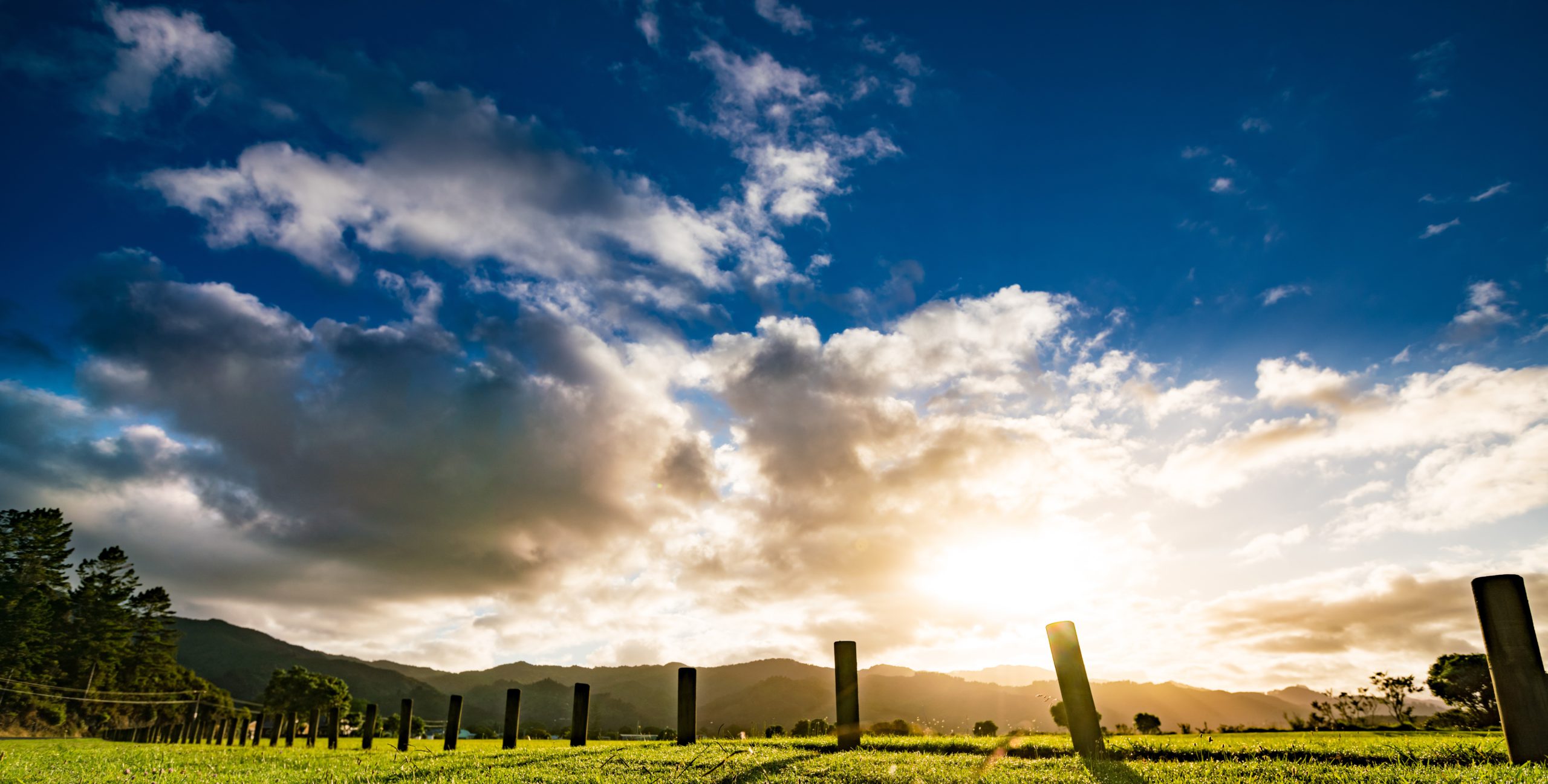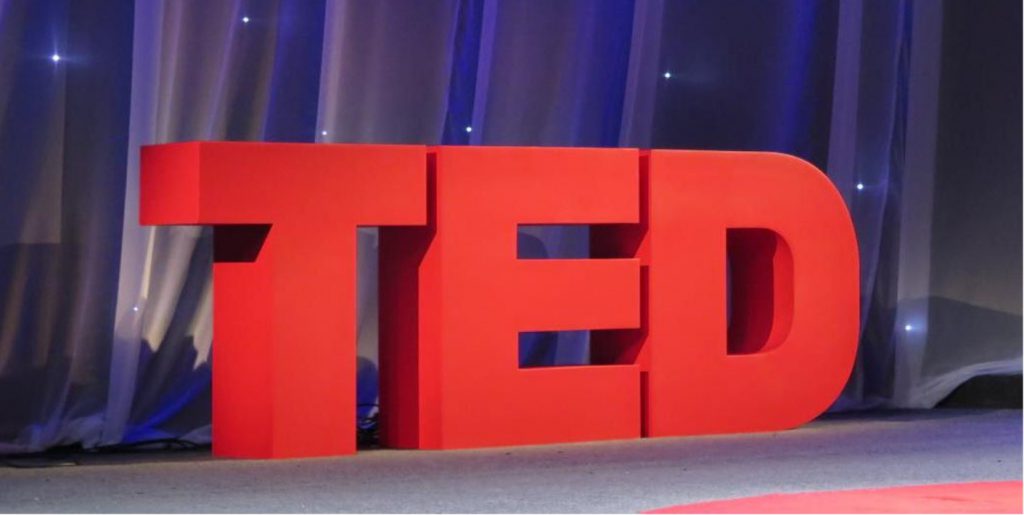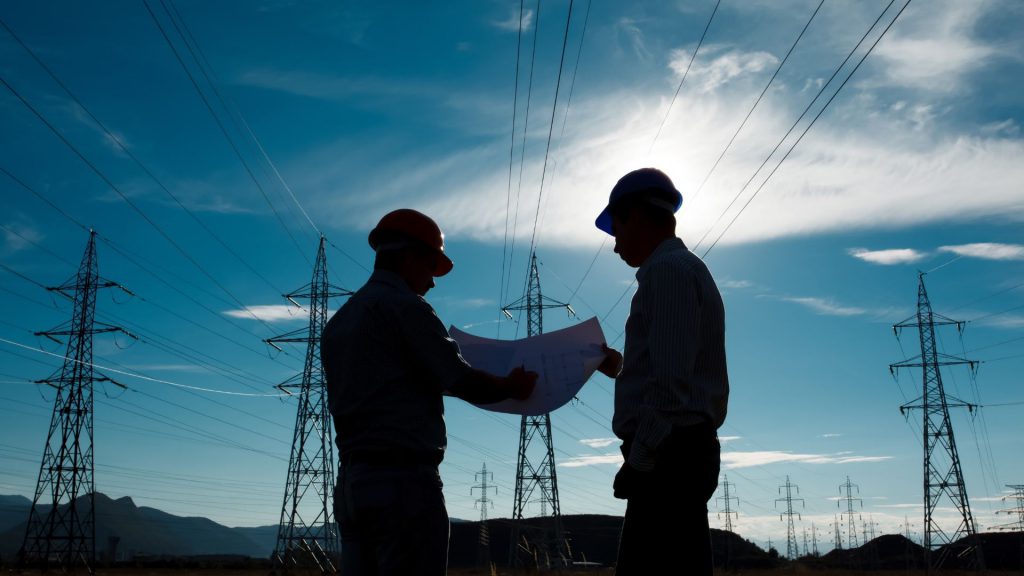Wondering where community solar is being built, and whether you can get access? We cover the top community solar states this year, and where the industry’s likely to go next.
Community solar made a big splash in 2017. In a year when the threat of tariffs hung over the solar industry and growth was mostly flat, community solar capacity more than doubled to 730 MW (enough to power approximately 120,000 households). But where are all of these solar gardens going in, and which community solar state is the most promising this year?
Table of Contents
Massachusetts, New York, Minnesota, and Colorado: The Four Top Community Solar States
Most of America’s existing community solar resources are in these four states. Colorado led the charge with its first pilot projects in 2011, and has made some important strides to include low-income communities in its projects. Minnesota has the most installed community solar to date, but given that the program doesn’t include much to support households in participating, most of that capacity is taken up by commercial clients.
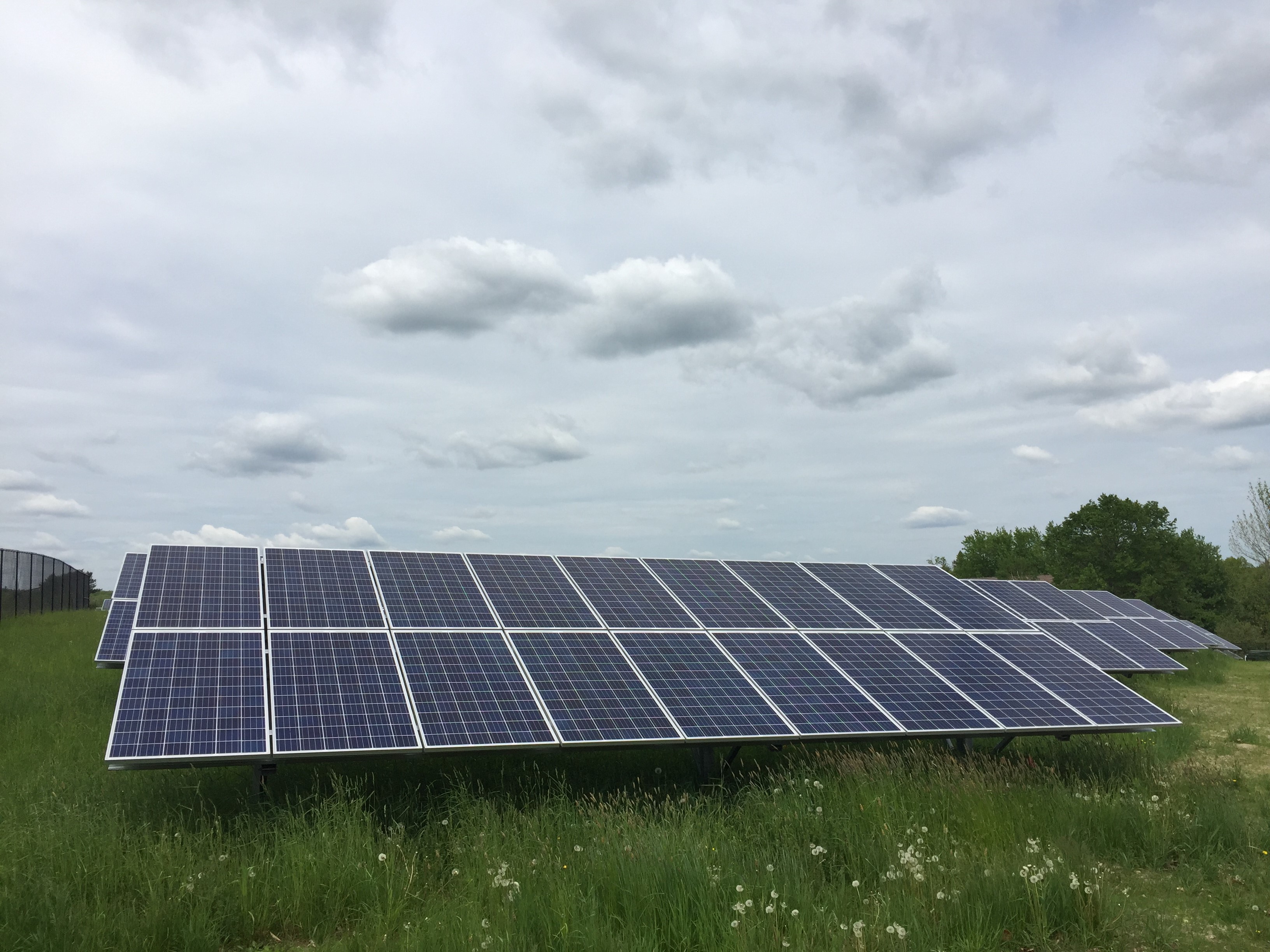
New York and Massachusetts, Solstice’s two home states, have community solar programs that have already delivered strong results for everyday people. There are already strong portfolios in each state, and though we have faced our share of regulatory hurdles, recent pressure on Governor Cuomo’s office in New York and action by the MA state legislature look likely to expand community solar and allow it to serve new communities.
Mapping the National Community Solar Landscape
We’ve put together a map all of the states where you can get community solar. This includes both states that have policies supporting community solar projects (orange), and ones where utilities and other groups have decided to take the initiative to make these projects happen (blue). Check it out:
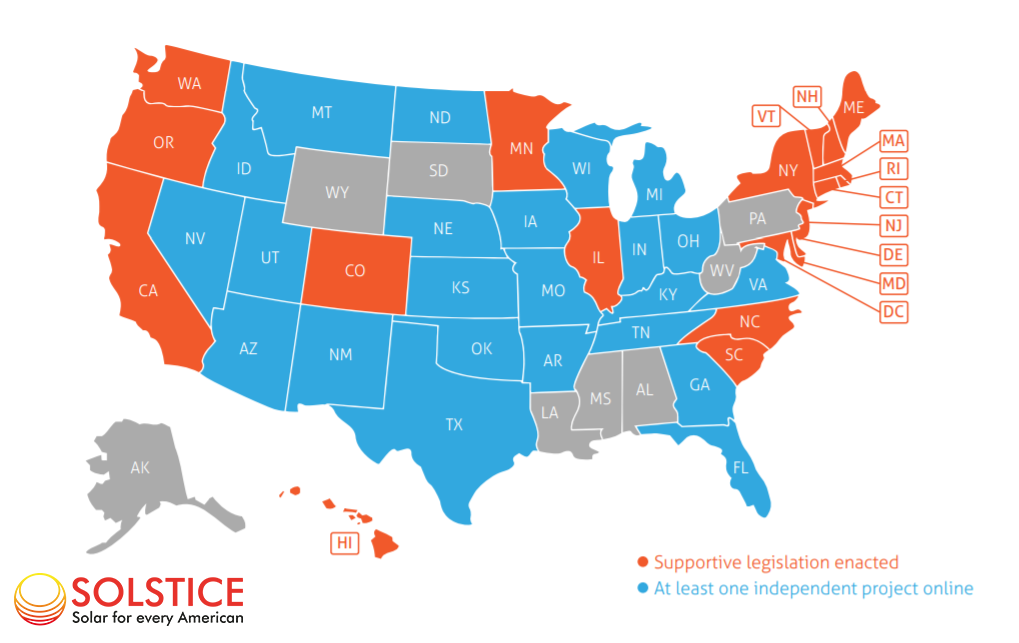
Overall, the top 19 community solar states are: CA, CO, CT, DE, HI, IL, MA, MD, ME, MN, NC, NH, NJ, NY, OR, RI, SC, VT, and WA (and don’t forget DC!).
Who Will Lead on Community Solar in the Future?
With all of these states committing to a community-driven future for their solar portfolios, the national community solar landscape is bound to look much different than it does today.
Some states, like Illinois, New Jersey, and Oregon, have particularly strong policies, but are still going through the process of developing their programs. In a few years, we expect these states to follow MA and NY in developing a strong community solar market.
Other states, such as California and Washington, are generally strong supporters of renewable energy, but have community solar programs that–to put it simply–aren’t terribly effective. Policy leaders in states like these should get input from experts in the industry and local communities, ensuring that the next versions of their programs actually put projects in the ground. These discussions are already happening in California, where specialized programs like the Solar On Multifamily Affordable Housing (SOMAH) program, are getting underway, and where solar advocates are pushing to include virtual net metering in the next iteration of the state’s solar program.
Finally, we see a growing number of electric utilities that see the need for community solar and that are taking the steps to start up their own programs. This is especially true for publicly-owned utilities and rural cooperatives, which are often more accountable to their customers. As more utilities realize the potential of shared solar programs to serve the needs of their customer and provide accessible clean energy for low-income constituencies, this will be another area of growth for the industry.
Want To Learn How You Can Take Part?
Reach Out To the Solstice Team!
